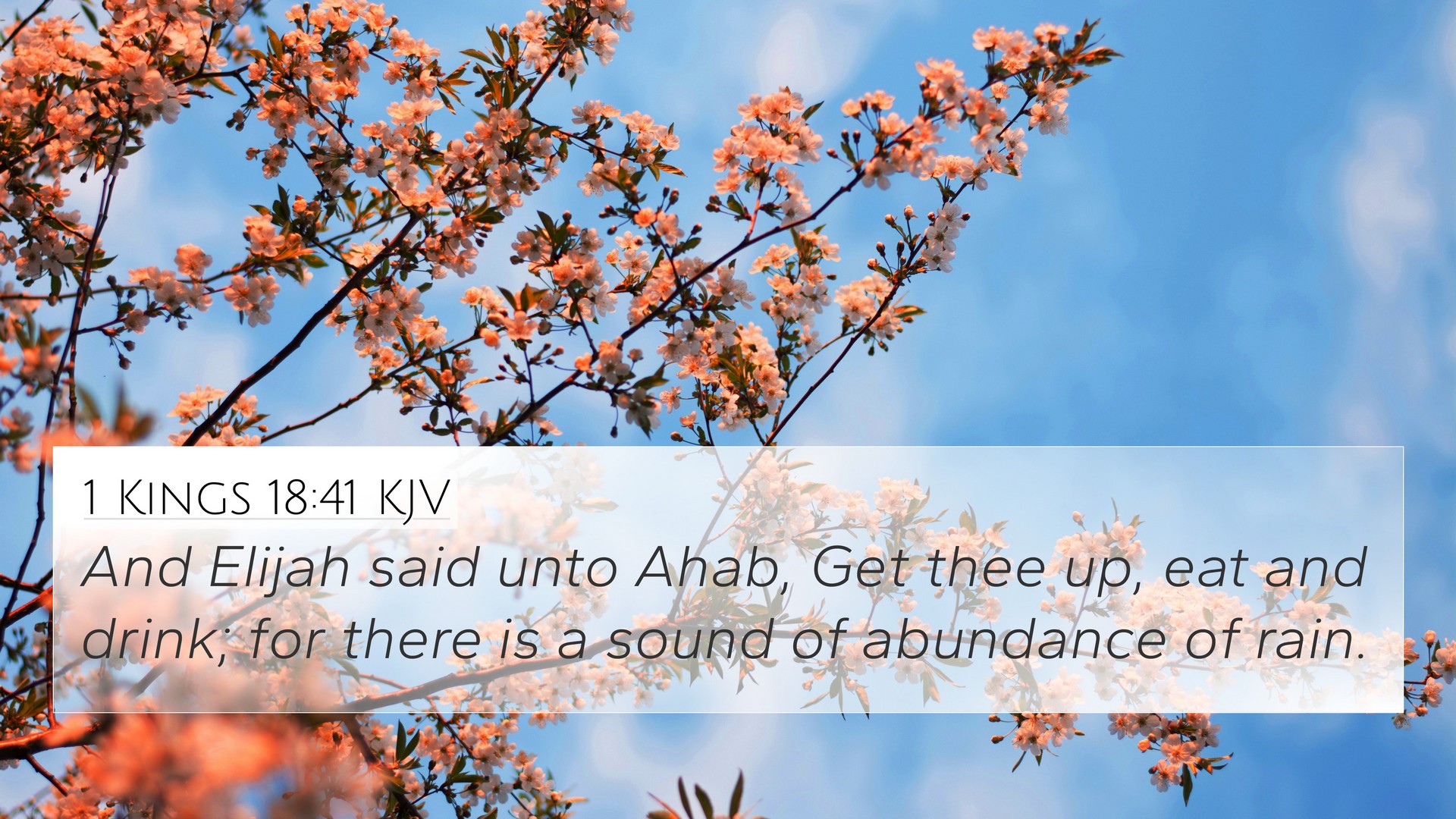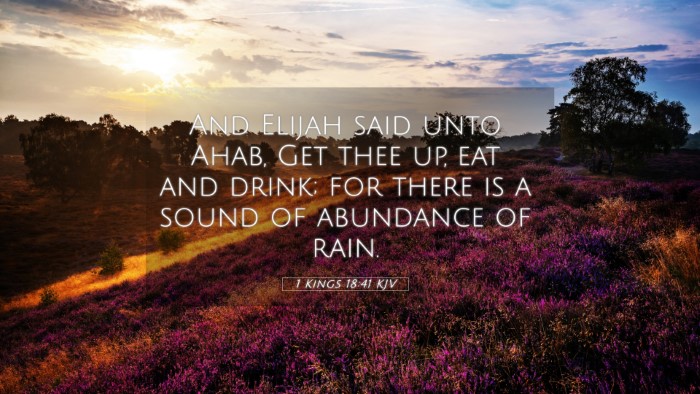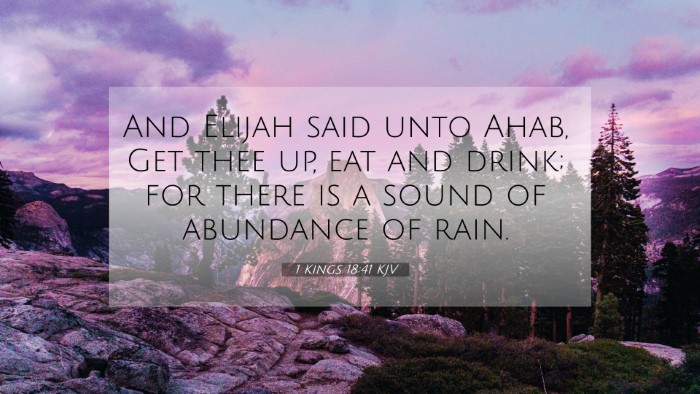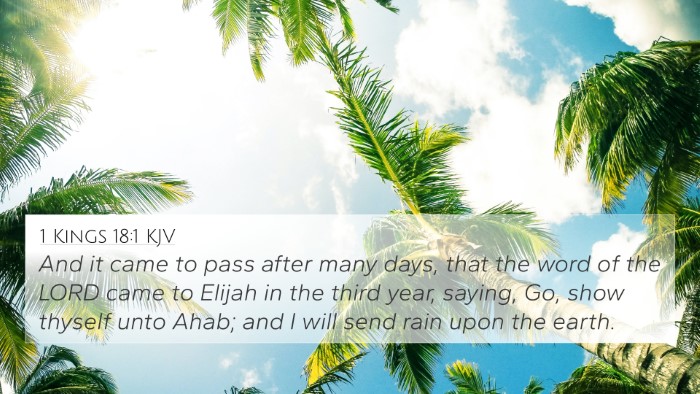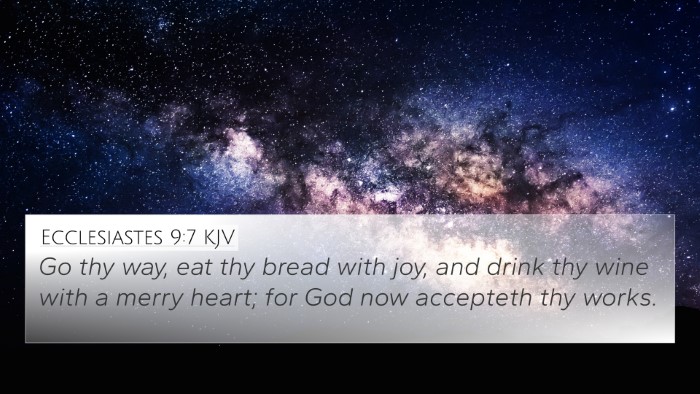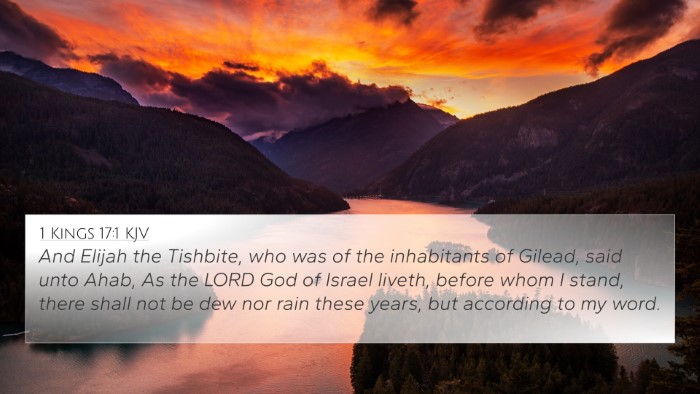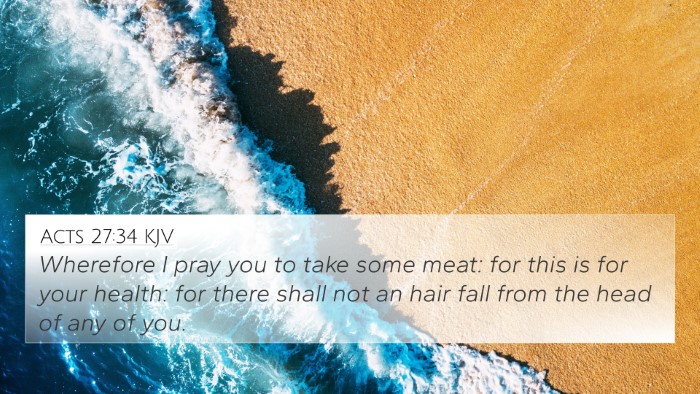Understanding 1 Kings 18:41
In this verse, the prophet Elijah speaks to King Ahab, stating: "And Elijah said to Ahab, 'Go, eat and drink, for there is the sound of a heavy rain.'
This verse marks a pivotal moment following the defeat of the prophets of Baal and the restoration of worship to the true God in Israel. It signifies a shift from drought to the promise of rain, symbolizing both physical sustenance and a spiritual renewal.
Verse Analysis
This verse holds deep theological and contextual significance:
- Prophetic Authority: Elijah’s role as a prophet is underscored; he is a mediator between God and the people.
- Faith in God’s Provision: Elijah demonstrates faith in God's promise of rain after a prolonged drought (1 Kings 18:1).
- Symbolism of Rain: The coming rain symbolizes God’s blessing and restoration (Deuteronomy 11:14).
Commentary Insights
According to Matthew Henry, this passage reflects the moment when hope and faith are rekindled within the nation. He highlights Elijah’s assurance of rain as a representation of God's mercy and covenant faithfulness, noting God's responsiveness to Israel's sincere repentance.
Albert Barnes points out that this declaration serves not just as a foretelling of weather changes, but as a call to action for Ahab. It urges the king to recognize that the drought's end signifies more than physical rain; it announces spiritual revival.
Adam Clarke discusses the historical context, emphasizing that Elijah's words may present a contrast between the previous idolatrous reign of Ahab and the new hope brought by true worship of Yahweh. Clarke also notes the significance of Ahab’s actions, pointing out that they reflect a necessary response to God’s blessings.
Bible Cross References
1 Kings 18:41 can be connected to several passages throughout the Bible that reinforce its themes:
- James 5:17-18: Discusses Elijah's prayer for rain.
- 1 Kings 17:1: The initial declaration of drought which sets the stage for this verse.
- Deuteronomy 28:12: Talks about God providing rain in due season as a blessing for obedience.
- 2 Chronicles 7:14: Emphasizes the importance of humility and prayer for healing and restoration.
- Isaiah 44:3: Offers a promise of floodwaters and blessings upon the thirsty land, reminiscent of the rain promised in this passage.
- Matthew 5:45: Indicates God's provision of rain for both the righteous and the wicked, showcasing His grace.
- Psalms 65:9-10: Celebrates God's care for the earth and the bounty of His provisions.
Thematic Connections
This verse interlinks with broader themes within the Scriptures:
- Restoration: Through God’s mercy, a broken nation is restored.
- Intercession: Elijah as a mediator reflects Christ’s role as the ultimate intercessor.
- Faith and Obedience: The necessity of faith that leads to action is highlighted.
Conclusion
1 Kings 18:41 serves as a powerful reminder of God’s promise and the necessity of faith, especially in times of spiritual drought. The shift from drought to rain symbolizes hope and restoration, which is echoed throughout both the Old and New Testaments. By cross-referencing this passage with others, we see a vibrant tapestry of God's faithfulness and the call for His people to respond in faith.
